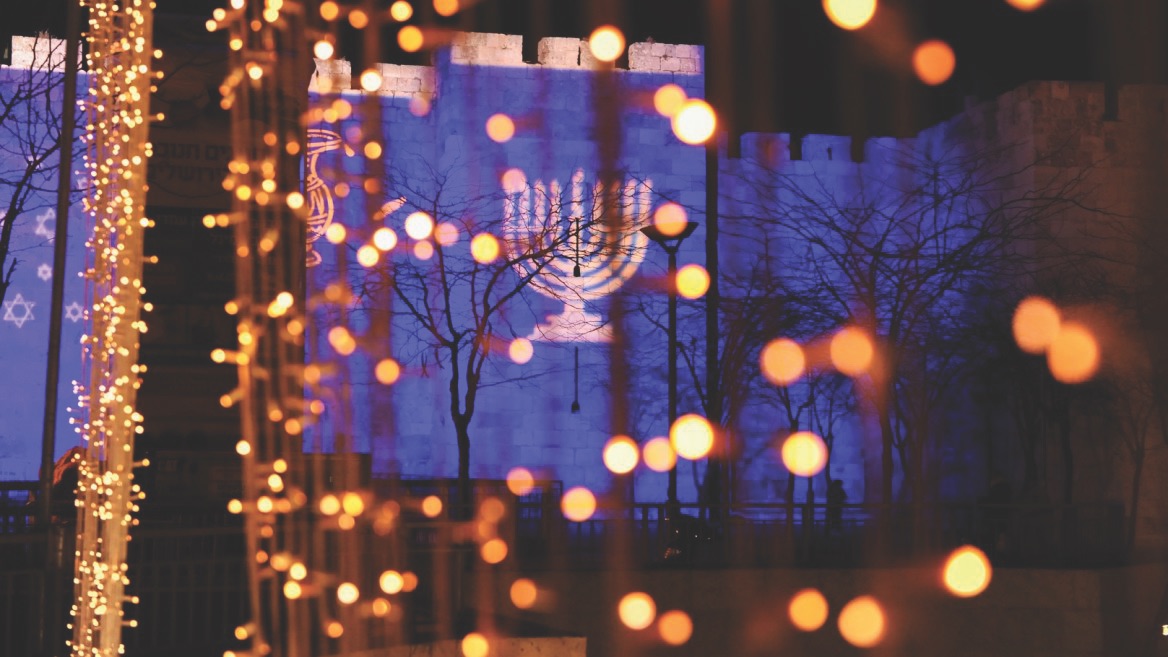
It’s that time of year again when American Jews bask in the wintertime flavor of Christmas — when we teach our children that the Jewish version of Christmas is called Hanukkah, that the equivalent of the Christmas tree is the menorah, that while Christians have a big gift-giving blowout, we have eight crazy nights (in Adam Sandler’s iteration). The prominence of Christmas in America means that American Jews often attempt to ride the Christmas coattails, to get into the “holiday spirit” — or, more cynically, to compete with Christmas in order to prevent our children from falling for the romance of Christmas.
To that end, we elevate Hanukkah as a holiday, treating it as more sacred than actual sacred days. A 2010 study published in The Economic Journal by Ran Abramitzky, Liran Einav and Oren Rigby found that while 38 percent of Jewish Tel Aviv University economics undergraduate students ranked Hanukkah among the three most important Jewish holidays, 68 percent of Jewish economics undergrads at Stanford University did so. Orthodox Jews celebrated Hanukkah whether they had young children in the home, but Reform Jews tended to celebrate the holiday only if they had young children in the home as a counterbalance to Christmas. As the study stated, “Jewish individuals may be more responsive to Christmas if their children are at a higher ‘risk’ of intermarriage, conversion, or feeling envy and left out during Christmas.”
This is a problem.
Hanukkah ought to be celebrated in its own right. And failure to see Hanukkah for what it truly it means that our children will be far more likely to abandon Judaism than to embrace it, no matter how many Lego sets we buy them to outdo Santa Claus.
The message of Hanukkah is precisely the opposite of what more secularized Jews believe it is. Hanukkah isn’t just a wintertime festival rife with consumerism and kitschy lights. It’s about the requirement for a fulsome Jewish lifestyle that infuses our entire being, that motivates us all year, that gives us something to live and die for. Hanukkah reminds us that Judaism cannot survive by outcompeting other religions, but by focusing inward — by creating a profound sense of Jewish identity.
Hanukkah, after all, is about a war: a war against Hellenism, the attempt by Greek forces to force a pagan vision upon the Jews. Hellenism offered a rich philosophic and aesthetic culture, a vision of the universe free of the burdens of the Torah. The Jews rebelled against that vision, refusing to allow our Temple to be defiled. Jews even fought other Jews who wished to join in the Hellenization, refusing to allow the land to be governed by the rule of foreign gods. In the vision of the Maccabees, Judaism was a lifelong commitment worth defending and protecting. The miracle was a result of that commitment.
This authentic view of Hanukkah enables Jews to see Christmas in a different light: not as a competing holiday, but as a ritual complete with aesthetic beauty but lacking any Jewish spiritual relevance. Thank God that America welcomes Jewishness; Christmas isn’t a threat. We can enjoy Irving Berlin songs and smile at Santa with children on his knee confident that our spiritual heritage isn’t threatened by the “fun” of the season. After all, we offer more than fun to our children. We offer a light we shine before the world proudly, unwaveringly and with a spirit of confidence, rather than in a spirit of nervous competition. If we fail to commit to Judaism more broadly but think that a few presents and some over-oiled hash browns will keep our kids Jewish, we’ve missed the message of Hanukkah entirely.
Ben Shapiro is editor-in-chief at The Daily Wire, host of the podcast “The Ben Shapiro Show” and author of The New York Times best-seller “Bullies: How the Left’s Culture of Fear Silences Americans.






















 More news and opinions than at a Shabbat dinner, right in your inbox.
More news and opinions than at a Shabbat dinner, right in your inbox.